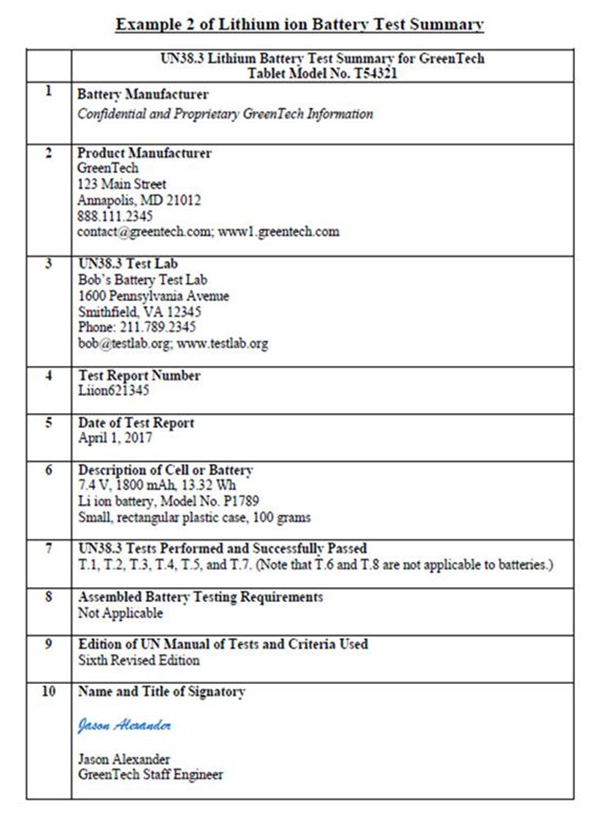
 您当前的位置:Our Services>
Certification Services>
Others
您当前的位置:Our Services>
Certification Services>
Others
Our Services


+86-769-83085888
+86 135 5499 1454


Battery UN38.3
1. UN38.3 Certification Test (Battery Air Transport Identification) Service Introduction
The UN38.3 test is a mandatory test to ensure that lithium batteries can be safely carried by air and sea. The Civil Aviation Administration of China issued the "Lithium Battery Air Transport Specification" to all air transport companies, which clearly requires that lithium batteries must pass the UN38.3 test in a laboratory accredited by CNAS before they are transported by air or sea. The lithium battery can only be accepted and transported under the premise of UN38.3 test report and air transport appraisal certificate.
2. Which batteries need to be tested for UN38.3 certification (battery air transport identification)
2.1 Various mobile phone batteries (such as lithium ion batteries, lithium polymer batteries, etc.)
2.2 Various primary batteries (such as lithium manganese batteries, etc.)
2.3 Various small secondary batteries (such as notebook computer batteries, digital camera batteries, video camera batteries, various cylindrical batteries, wireless communication batteries, portable DVD batteries, CD and MP3 player batteries, etc.)
2.4 Various power secondary batteries (such as batteries for power vehicles, batteries for electric road vehicles, batteries for electric tools, batteries for hybrid vehicles, etc.)
3. UN38.3 Certification Test (Battery Air Transport Identification) Requirements
UN38.3 refers to Chapter 38.3 of Part 3 of the United Nations Manual of Tests and Criteria for the Transport of Dangerous Goods specially formulated by the United Nations for the transportation of dangerous goods, which requires that lithium batteries and equipment containing lithium batteries must pass through All tests of UN38.3, including T.1 height simulation, T.2 high and low temperature cycle, T.3 vibration test, T.4 mechanical shock test, T.5 external short circuit, T6 impact/extrusion test, T.7 Overcharge test, T.8 forced discharge test, so as to ensure the safety of lithium battery transportation and reduce the risks that dangerous goods may encounter during transportation. If the lithium battery is not installed with the device, it must also pass the 1.2 m free drop test.
Lithium battery packaging and transportation guidelines:
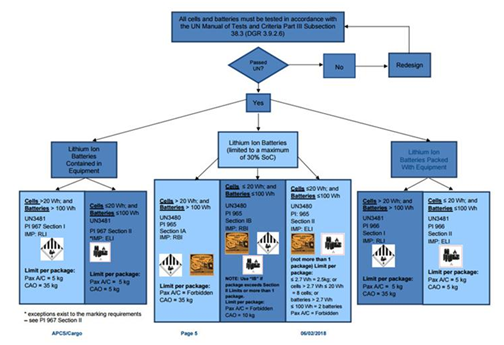
Lithium battery operation label:
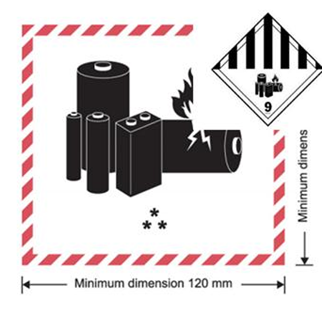
The ninth class of dangerous goods label:
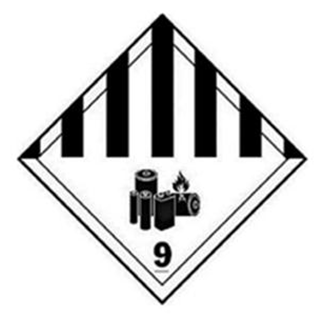
ICAO and the Civil Aviation Administration of my country have notified that from January 1, 2020, the UN38.3 Test Summary (UN38.3.5 Lithium Cell and Battery Test Summary) must be provided when lithium batteries are transported. Subsequently, Amazon also issued a notice requiring that from January 1, 2020, all products for lithium batteries and products containing lithium batteries must provide a UN38.3 test summary.
The main updates of UN38.3 are as follows:
1. UN38.3 test reports issued after January 1, 2020 must be stamped with the CNAS seal;
2. For companies that have completed the UN38.3 test report before January 1, 2020, they can supplement the UN38.3 test summary. The UN38.3 test summary does not need to be stamped with the CNAS seal for the time being;
3. Additional costs will be incurred if the UN38.3 test summary is issued separately and the CNAS seal is affixed;
4. The Test Summary specifies 10 basic contents, including the complete company name, address, telephone, email, website, etc., as well as the corresponding battery information and test information.
A screenshot of the notification Amazon sent to all e-commerce merchants is as follows:
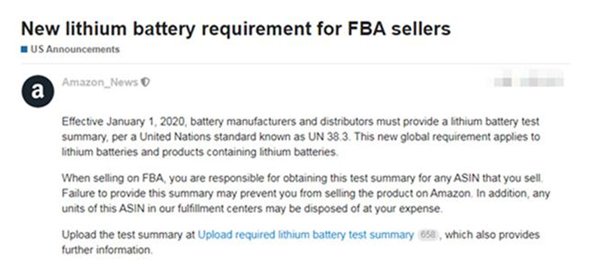
The Test Summary template of UN38.3 is as follows (applicable to lithium batteries):
